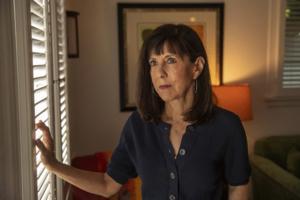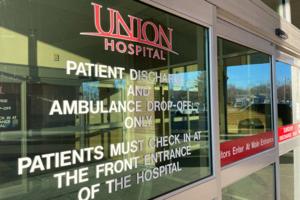Health Advice
/Health

What threats lurk in the smoke and ash of LA-area fires? New health warnings
LOS ANGELES — As Santa Ana wind conditions continue to stoke fears of resurgent wildfires across Los Angeles, health officials are warning of yet another wind-borne threat: ash and dust from active fire zones and burn scars.
On Tuesday, the Los Angeles County Department of Public Health issued a windblown dust and ash advisory until 7 p.m. ...Read more

'Obamacare' enrollment hits all-time high, deadline to sign-up is Wednesday
ATLANTA — Wednesday is the deadline for people who are interested in subsidized health insurance plans on the Affordable Care Act marketplace.
As it winds down, the shopping season for 2025 coverage has already seen record enrollment in Georgia as well as nationwide. It’s particularly remarkable in Georgia because it occurred at the same ...Read more
Your guide to realistic health goals in 2025
Instead of being overwhelmed or anxious about the new year, the American Medical Association suggests effective wellness goals that lie in simple, sustainable changes.
Here are four evidence-based strategies that can help build lasting healthy habits:Move more...Read more

Alcohol and cancer: Are warning labels warranted?
PITTSBURGH -- When Julie Senchak would accompany her mom to doctor's appointments in the early 2000s, she would listen to what the oncologists said about alcohol — that drinking it could increase the chance of developing cancer. Even at a relatively young age, it was enough to convince Senchak not to drink alcohol, given her family history.
...Read more

Trump's return puts Medicaid on the chopping block
Under President Joe Biden, enrollment in Medicaid hit a record high and the uninsured rate reached a record low.
Donald Trump’s return to the White House — along with a GOP-controlled Senate and House of Representatives — is expected to change that.
Republicans in Washington say they plan to use funding cuts and regulatory changes to ...Read more

Parkinson's tremors disappear with use of machine that sends heat waves to the brain
DELRAY BEACH, Fla. — Delray Medical Center cut the ribbon on its newest high-tech machine last week that targets brain areas to treat movement disorders such as essential tremor and tremor-dominant Parkinson’s disease.
The machine can stop the involuntary trembling of the heat and hands experienced by people with neurological disorders in ...Read more

Mayo Clinic Minute: Molecular breast imaging for supplemental breast screening
If you are one of the millions of women identified as having dense breasts, your health care team may recommend supplemental or additional screening to check your breasts for cancer.
Dr. Kristin Robinson, a breast radiologist at Mayo Clinic, says there are several options when it comes to these screening tests. She recommends working closely ...Read more

After recovering from heart failure related to pregnancy, she went on to game show glory
As academic director for Duke University's corporate education business, Cheryl Stokes traveled the globe. Doing so while 4 months pregnant meant enduring more discomfort than usual.
While returning home from a work trip, she felt a few contractions. But she was more concerned about her mother, Myrtle Bell, who was recovering from a stroke ...Read more

Climate change threatens the mental well-being of youths. Here's how to help them cope
We’ve all read the stories and seen the images: The life-threatening heat waves. The wildfires of unprecedented ferocity. The record-breaking storms washing away entire neighborhoods. The melting glaciers, the rising sea levels, the coastal flooding.
As California wildfires stretch into the colder months and hurricane survivors sort through ...Read more

Mayo Clinic Minute: Reset your eating habits for a new year
It's officially 2025. A new year offers new beginnings and an opportunity to reset your eating habits after the holidays.
Andrea Delgado, a Mayo Clinic dietitian, says it's best to eliminate what you don't need, including those party food leftovers.
Is your refrigerator holding onto holiday leftovers? It's OK to let them go.
"What we want to ...Read more

Illinois approves 4 new conditions for women for medical marijuana
For the first time since 2019, Illinois regulators have approved new medical conditions to qualify for medical cannabis, all centered around women’s health.
Endometriosis, ovarian cysts, uterine fibroids and female orgasmic disorder were approved by the Illinois Department of Public Health, at the recommendation of the Medical Cannabis ...Read more

Mayo research sorts out whether rare BRCA mutations have cancer links
A Mayo Clinic-led team of researchers is solving one of the most frustrating aspects of genetic cancer screening — results that give zero guidance to patients on whether they are at elevated risk.
While some mutations in the BRCA2 gene clearly indicate risks for breast and prostate cancer, thousands of less-common variations have confounded ...Read more
Respiratory illnesses are up nationwide. Here are the COVID, flu and RSV hotspots
If it feels like everyone around you is fighting off a cold or recovering from the flu, it may be because respiratory illnesses are running rampant in most of the United States, and cases are only increasing.
The overall respiratory illness activity level in the U.S. was rated as “high” by the Centers for Disease Control and Prevention on ...Read more

Medicaid expansion debate will affect other health policy issues before Montana Legislature
HELENA, Mont. — A last-minute change to a 2019 bill put an end date on Montana’s Medicaid expansion program, setting the stage for what is anticipated to be the most significant health care debate of the 2025 Montana Legislature.
In recent interviews, legislative leaders predicted a vigorous debate over keeping the Medicaid expansion ...Read more

Mayo Clinic Q and A: So your kids were gifted noisy toys: Now what?
DEAR MAYO CLINIC: My teenager received new headphones for Christmas while my preteen asked for a drum set. It's been a bit noisy around here. How can I protect their developing hearing?
ANSWER: Hearing loss often is thought of as something that happens to the elderly. But we live, work and play in a noisy environment, and hearing loss affects ...Read more

Ask the Pediatrician: What to do if your infant or toddler hits their head
Just like older kids, babies and toddlers can get concussions. In fact, little ones face some extra risks. But it can sometimes be harder to recognize the signs of concussion, a type of mild traumatic brain injury, in infants and toddlers. They may not have the language skills yet to tell you how they feel.
The impact from a bump, blow or jolt ...Read more

Heart-protecting advice for a peak experience in the mountains
Whether it's a wintry visit to a snow-covered ski resort or a summertime hike in an alpine park, a vacation in the mountains can be breathtaking. Literally.
"There is less oxygen available to breathe at higher altitudes," said Dr. William K. Cornwell, an associate professor of cardiology at the University of Colorado Anschutz Medical Campus in ...Read more
Health care AI, intended to save money, turns out to require a lot of expensive humans
Preparing cancer patients for difficult decisions is an oncologist’s job. They don’t always remember to do it, however. At the University of Pennsylvania Health System, doctors are nudged to talk about a patient’s treatment and end-of-life preferences by an artificially intelligent algorithm that predicts the chances of death.
But it’s ...Read more

New noninvasive asthma test may help doctors tailor treatment for kids
Impacting millions of children in the U.S. alone, asthma can be particularly problematic to diagnose with specificity — leaving the majority of kids without treatments that target their subtype of the condition.
Using a new, noninvasive nose swab test, researchers at the University of Pittsburgh have for the first time detected multiple ...Read more

Indiana state senator moves to scrap hospital monopoly law he helped create
On the heels of a scuttled hospital merger between rivals in Terre Haute, Indiana, a state senator introduced a bill that would forbid similar mergers in the future.
Last year, nonprofit Union Health tried to acquire the only other acute care hospital in Vigo County by leveraging a state law it helped create that allows hospital monopolies. Now...Read more
Popular Stories
- Your guide to realistic health goals in 2025
- Alcohol and cancer: Are warning labels warranted?
- Mayo Clinic Minute: Molecular breast imaging for supplemental breast screening
- After recovering from heart failure related to pregnancy, she went on to game show glory
- Mayo Clinic Minute: Reset your eating habits for a new year








